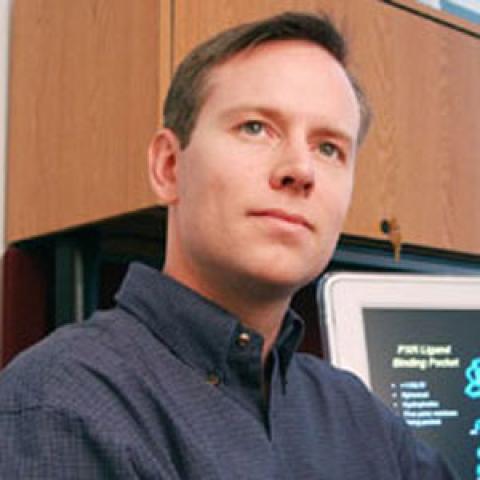Signal Transduction
The Mango/Kliewer lab studies two signal transduction pathways that impact diseases such as diabetes, obesity, cancer, alcohol intoxication, and parasitism.
Our lab is interested in understanding the molecular and physiologic components of two signal transduction pathways that offer new therapeutic potential for treating diseases such as diabetes, obesity, cancer, and parasitism.
The first pathway is governed by nuclear hormone receptors, a class of ligand-dependent transcription factors that affect numerous developmental and metabolic processes.
The second pathway is mediated by the endocrine fibroblast growth factors, FGF19 and FGF21, which control energy metabolism in response to nutrient availability.

Dr. David J. Mangelsdorf runs a joint laboratory with Dr. Steven Kliewer, and together their research team is focused on nuclear receptor regulation of metabolism. Their early work identifying the ligands and physiologic functions of a number of orphan nuclear receptors led them to discover two new signaling pathways mediated by the endocrine factors FGF19 and FGF21, which govern nutrient metabolism during feeding and fasting. Together, this work has uncovered potential therapeutic targets for diseases such as cholestasis, type 2 diabetes, and obesity.
The Mangelsdorf/Kliewer lab also discovered the existence of a nuclear receptor pathway in parasitic nematodes, and has shown that pharmacophores that target this pathway may represent a new class of anthelmintic agents.
Dr. Mangelsdorf is Professor and Chair of the Department of Pharmacology, and an Investigator of the Howard Hughes Medical Institute. He holds the Raymond and Ellen Willie Distinguished Chair in Molecular Neuropharmacology, in Honor of Harold B. Crasilneck, PhD and the Alfred G. Gilman Distinguished Chair in Pharmacology, and he is a member of the National Academy of Sciences.

Steven Kliewer earned his BS in biochemistry from Brown University in 1985 and his PhD in molecular biology from UCLA in 1990. From 1990-1993, he was a postdoctoral fellow at the Salk Institute, and from 1993-2002 he was a scientist at GlaxoSmithKline, rising to Director of Nuclear Receptor Research. In 2002, he joined UT Southwestern, where he is currently Professor of Molecular Biology and Pharmacology and holds the Diana K. and Richard C. Strauss Distinguished Chair in Developmental Biology. He is a member of the National Academy of Sciences.
 Cover image from Nature Medicine showing cholesterol crystals in bile (December 2004).
Cover image from Nature Medicine showing cholesterol crystals in bile (December 2004).